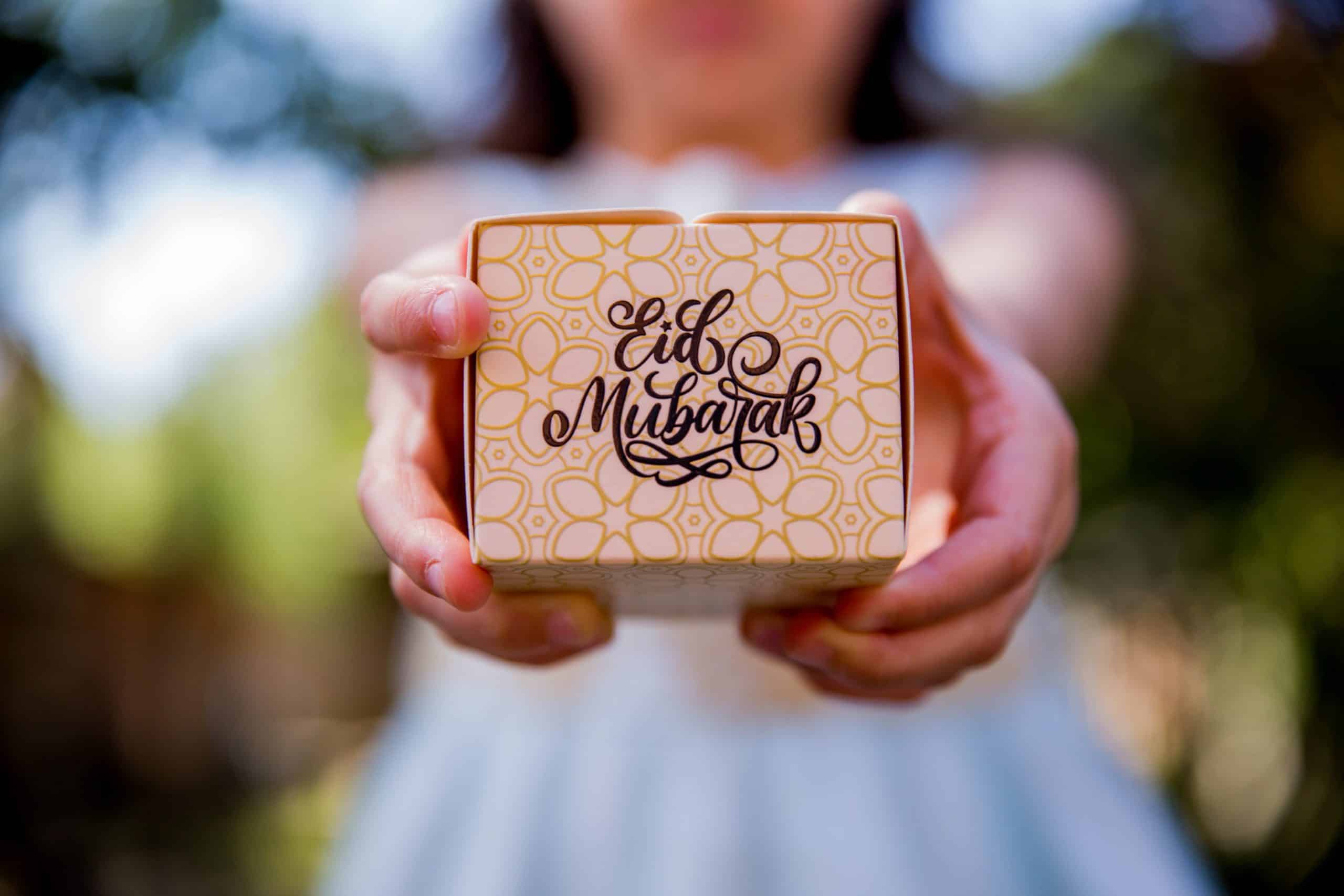Eid: glorify Allah through takbeer, showing gratitude and spreading joy

In the verses regarding fasting in Surat al Baqarah, Allah Almighty said, He wants ease for us; He doesn’t want hardship for us, so that we may complete our fasts and glorify Allah for granting us guidance and be grateful.
شَهْرُ رَمَضَانَ الَّذِي أُنزِلَ فِيهِ الْقُرْآنُ هُدًى لِّلنَّاسِ وَبَيِّنَاتٍ مِّنَ الْهُدَىٰ وَالْفُرْقَانِ ۚ فَمَن شَهِدَ مِنكُمُ الشَّهْرَ فَلْيَصُمْهُ ۖ وَمَن كَانَ مَرِيضًا أَوْ عَلَىٰ سَفَرٍ فَعِدَّةٌ مِّنْ أَيَّامٍ أُخَرَ ۗ يُرِيدُ اللَّهُ بِكُمُ الْيُسْرَ وَلَا يُرِيدُ بِكُمُ الْعُسْرَ وَلِتُكْمِلُوا الْعِدَّةَ وَلِتُكَبِّرُوا اللَّهَ عَلَىٰ مَا هَدَاكُمْ وَلَعَلَّكُمْ تَشْكُرُونَ
Ramadan is the month in which the Quran was revealed. Guidance for humanity, and clear portents of guidance, and the Criterion. Whoever of you witnesses the month, shall fast it. But whoever is sick, or on a journey, then a number of other days. God desires ease for you, and does not desire hardship for you, that you may complete the number, and celebrate God for having guided you, so that you may be thankful. (2:185)
Takbeer
At the end of Ramadan, Allah Almighty says that when we finish our prescribed period of fasting, we should make takbeer, which we do every Eid as per the sunnah of the Prophet (peace be on him). The takbeer refuted the well-established pagan practices and beliefs of the idol worshipping community to whom Islam was first sent. It confirms the oneness of Allah Almighty. “Tukabiru” means to glorify Allah Almighty. The takbeer declares that nothing is greater than Allah Almighty – no idols, no gods, no rulers, nobody is greater than Allah Almighty, not even tyrants and oppressors. Allah Almighty is the greatest and this is embedded in the heart of believers and re-confirmed by every adhan and in every salah. We have to glorify Allah Almighty continuously, as He provided us with everything we have.
How to glorify Allah
Glorification is not just verbal. It has to be translated into actions. We truly glorify Allah when we establish regular and punctual salah, and respond to His commands, because He is the greatest and we owe it to him. This is part of our glorification.
How to show gratitude
Towards the end of the verses on fasting, Allah Almighty says that fasting should lead to more gratitude وَلَعَلَّكُمْ تَشْكُرُونَ. There are two types of gratitude: verbal and physical. Verbal gratitude is to say alhamdulillah, shukrulillah, and thank Allah for the favours of which He has given us. He enabled us to pray, fast, stand in night prayers, and recite the Qur’an.
Physical gratitude is to give from what Allah has given to us – to give sadaqah (charity), pay zakat ul fitr and zakat is gratitude in action. We also show gratitude by wearing nice clothes at Eid, as per the Sunnah of the Prophet (peace be on him). We also show gratitude by showing happiness and spreading happiness. The Prophet (peace be on him) narrated:
إِنَّ لِكُلِّ قَوْمٍ عِيدًا، وَهَذَا عِيدُنَا
“For every nation there is a Eid, and this is our Eid”. (Bukhari)
Spread happiness
Regardless whether we are suffering from illness, or have pain in our heart, we have to show happiness. In the description of the Prpohet (peace be on him) Anas (may Allah be pleased with him) said he always had a smile on his face, especially on the day of Eid, so we need to spread joy around us.
Allah Almighty says in the Qur’an:
قُلْ بِفَضْلِ اللَّهِ وَبِرَحْمَتِهِ فَبِذَٰلِكَ فَلْيَفْرَحُوا هُوَ خَيْرٌ مِّمَّا يَجْمَعُونَ
Say, “In God’s grace and mercy let them rejoice. That is better than what they hoard.” (10:58)
Therefore, we have to spread happiness in the community, especially in the day of Eid to show that we are happy about the completion of our ‘ibadah. The command for ‘ibadah comes with ease, and gratitude and is followed by happiness. Thus we need to show that we are happy that we have completed our month of fasting and we ask Allah Almighty to accept it from all of us. Ameen.
The sunnah of the Prophet (peace be on him) on the day of Eid was to gather the community altogether in an outdoor open air space, not inside the mosque. He never prayed Eid inside the mosque – he usually prayed Eid outside in the open-air. He allowed everybody to come together – men and women, adults and children, youngsters to celebrate the mercy from Allah Almighty.
There are some narrations which refer to the day of Eid, as the day of the prize. Although there has some weakness in the narration, the combination of different narrations make it good, thus ‘the day of Eid is the day of the prize’. Just as you give somebody who finishes their work, their wage, those who fast for Allah’s sake, are given their wages by Allah, the prize on the day of Eid.
Saeed bin Aws Al-Ansari on the authority of his father, narrated that the Messenger of Allah (peace be upon him) said:
معجم الطبراني عن سعيد بن أوس الأنصاري عن أبيه قال: قال رسول الله صلى الله عليه وسلم: إذا كان غداة الفطر وقفت الملائكة في أفواه الطرق فنادوا يا معشر المسلمين اغدوا إلى رب رحيم يمن بالخيرات ويثيب عليه الجزيل، أمرتم بصيام النهار فصمتم، وأطعتم ربكم فاقبضوا جوائزكم، فإذا صلوا العيد نادى مناد من السماء ارجعوا إلى منازلكم راشدين قد غفرت ذنوبكم كلها ويسمى ذلك اليوم في السماء يوم الجائزة.
If the morning of Eid al-Fitr comes, the angels stand in the mouths of the roads and call out, O Muslims, go to a merciful Lord who will give bounties and reward for him abundantly. Your rewards, and when you pray the Eid, a caller from heaven will call out, “Return to your homes of sound mind, all of your sins have been forgiven, and that day in heaven is called the Day of Reward.” (Tabarani)
Inshallah all of us will be from those who have been forgiven. Ameen.
Shaykh Haytham Tamim Eid Khutbah 2nd May 2022
Transcribed by Zayna Sheikh
- How Allah strengthens the hearts of believers
- Why should you follow up one good action with another one?
- Don’t be a Ramadani person – Be a Rabbani person.
- How do you pray Salat al-Kusuf – the prayer during a solar eclipse
- The test of will – Tarawih Reflections 30

Recommended Posts

How Allah strengthens the hearts of believers
April 19, 2024

Don’t be a Ramadani person – Be a Rabbani person.
April 10, 2024

